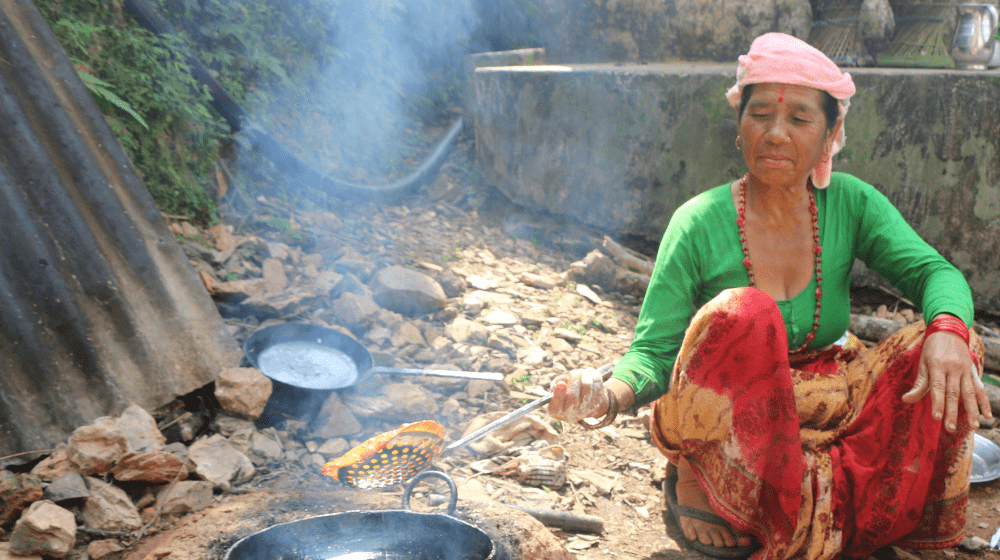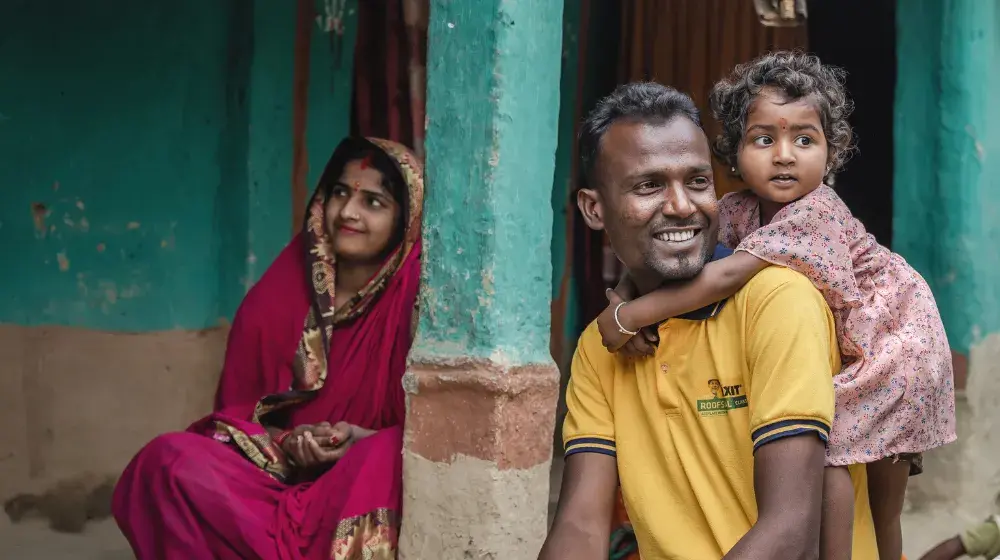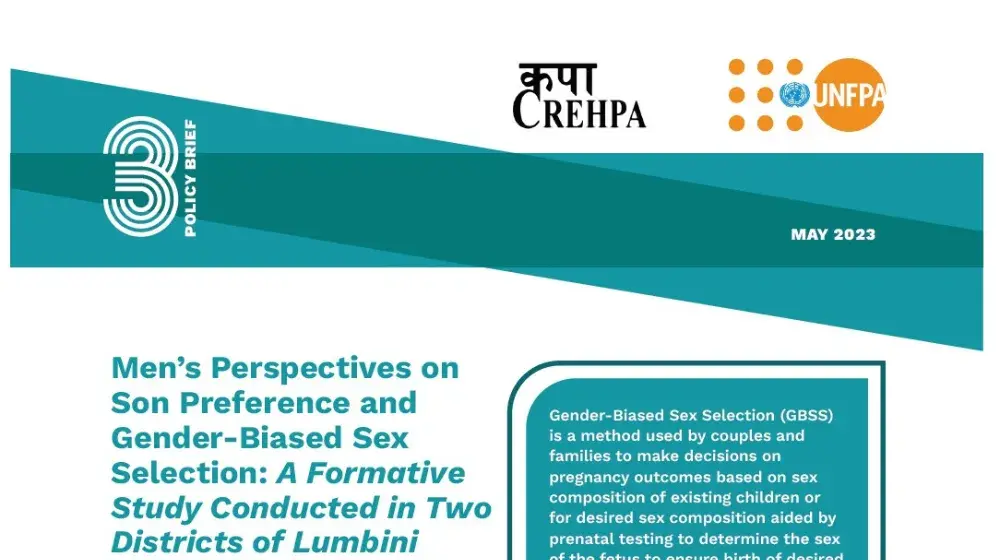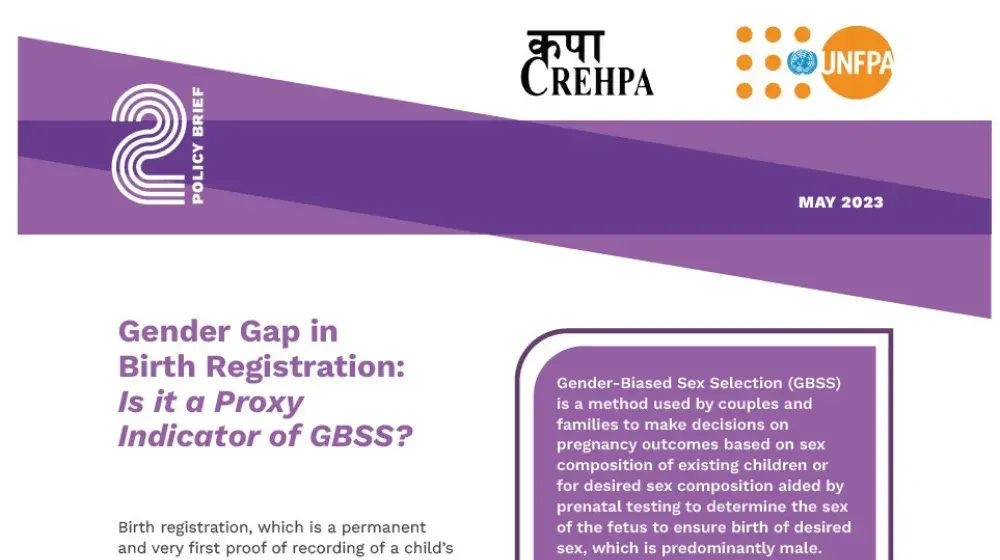“I spent my whole life taking care of my 4 children with my husband, but now they have all grown up and have families of their own. I am so proud of them but this feeling of being a burden to them….it never goes away” says Rukmathi* with tears rolling down her face.
Rukmathi is a 78 year old from Surkhet of Karnali Province (Province 6) in Nepal. She and her husband worked hard for years to put food on the table for their 4 children - 2 daughters and 2 sons. They educated their children and did everything to make sure they will have successful lives. When the children were older, as per the customs of Nepal, Rukmathi also partitioned her 10 perch land to ensure her sons got equal stake in the land that they owned. Over time, the sons built their own homes in the land and had their own children. Each son also decided to provide a room for each parent - the eldest son provided a roof over the head for Rukmathi, while the younger son took care of their father.
Although they now live with their children, she and her husband try not to ‘burden’ them by living off their support but instead, they manage their expenses with the allowances they receive from the Government and their very little savings which they had monthly set aside for years.
As time went by, the eldest son started consuming alcohol and often came home in a drunken state, disrupting the once quiet family neighborhood.
“One day he came home at around 6am and demanded food. When I told him that I had just woken up and that food would take time to be prepared, he took the plate he had in his hand and bashed it on my head - shouting for me to die and stop being a burden to them” recalls Rukmanthi. “To this day I am not sure what hurt the most - the physical pain of the plate on my head, or those harsh words replaying time and time again in my head.”
Unable to bear both the physical and emotional pain from that incident, Rukmathi went to the nearest police station to lodge a complaint. The Police then referred her to the Hospital-based One Stop Crisis Management Center (OCMC)** in the area, where she was treated for her injuries to the head and provided with some counseling support for the emotional heartache she was going through. While administering treatment to Rukmathi, the staff of the OCMC also found that Rukmathi has not been taking any of the required medication as she did not have enough money to buy them without burdening her children. So the staff also got her some key vitamins and medication that she needed.
Rukmathi even refused to go home, and requested the OCMC to refer her to a Senior Citizens home at least for a few weeks until she fully recovered emotionally. Since then, Rukmathi has received several follow up counseling sessions through the psychosocial workers from the OCMC.
Rukmathi is not alone in this struggle.
The Issue
Nepal’s demography is starting to age alongside the global trajectory. The UN has estimated that the global population of people aged 60 years and older will more than double, from 900 million in 2015 to about 2 billion in 2050. In Nepal, studies show the country is also entering a phase of demographic transition and in the next few years, the over-60 population is projected to reach 10 percent of the overall population.
With an increase in the ageing populations, Governments must also enhance their investments in healthcare and other essential services and infrastructure to cater to this growing demand. However, Nepal and several other South Asian countries in general, are lagging in providing adequate elderly care, forcing older persons to solely rely on their children, particularly sons as dictated by social norms, for support and security in their later years.
A majority of healthcare in Nepal is also privately owned which means it comes at a cost, which often, families cannot afford if they have more than one older person to care for. The Government provides an allowance for individuals 75 years of age and above, and in the case of widows, that allowance is applicable once the age of 60 is reached. The Government also conducts periodic public health programmes but they are often not targeted at older persons to include health screening, cancer prevention programmes or mental healthcare.
Nepal is also known to have a high rate of migration overseas. For instance, the Nepal Demographic and Health Survey of 2016 showed that 47% of Nepali households had at least one member that migrated in the previous 10 years, and 68% of men migrated for work outside the country. This means that there are many more older persons, especially women, left behind to bear the physical, social, emotional and financial responsibilities of the family, serving as caregivers, even as they age and transition from providers to dependents at an older stage of life.
Aside from the lack of efficient welfare support and social security structures, the rights of older persons have not yet received as much attention as other groups, despite older persons being one of the most neglected groups in Nepal that continue to face abuse and lack of respect.
In light of these challenges, Rukmathi and several others are left with no other choice but to continue to depend on their children for support, despite their best efforts of saving for their retirement. This dependence can also turn into violence and elder abuse.
According to the World Health Organization (WHO), around 1 in 6 people aged 60 years and older experienced some form of abuse in community settings during the past year. These rates of abuse of older people have increased during the COVID-19 pandemic, as seen in the life of Rukmathi.
The Response
The phenomenon of population ageing can be attributed to increased life expectancy and declined fertility rates which are both associated with continual social and economic development. While an ageing population brings about advantages, aged societies are now faced with the social, economic, and public health costs and challenges. To address these issues, countries will require comprehensive policy responses that take into consideration the population dynamics and its nexus to the development of a country and promote active and inclusive ageing.
While there is no single comprehensive policy to address the challenges and opportunities posed by population ageing, UNFPA advocates for an urgent need for countries to adopt a life-cycle approach with gender equality at its core. The life-cycle approach endorses a rights-based, gender-sensitive, comprehensive approach to population ageing, emphasizing the sequential events and developmental steps at every stage of a person’s life - from birth to childhood, adolescence, and adulthood.
UNFPA believes in celebrating life ‘For Every Age' - highlighting the need for rights-based life-cycle policies to transform perceived demographic challenges into opportunities for all.
After all, everyone deserves to enjoy the journey of healthy and active ageing - ageing with dignity and respect!
*Ends*
*Names have been changed to maintain confidentiality.
**The One Stop Crisis Management Center (OCMC) is being supported by UNFPA with funding from the Delegation to the European Union (EU) under a two year project entitled ‘COVID-19 Crisis Response to Gender-based Violence in Nepal’ (2020 - 2022) to ensure the availability and accessibility of essential GBV response services during and after the COVID-19 lockdown. With partners such as CMC Nepal, Sancharika Samuha and WOREC, the project is operational in 7 municipalities across a total of 4 districts: Dhanusha District in Madhesh Province 2; and Dailekh, Jumla and Surkhet Districts in Karnali Province 6.





